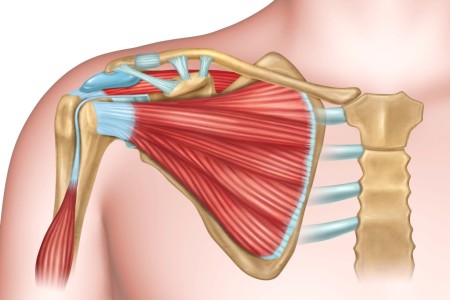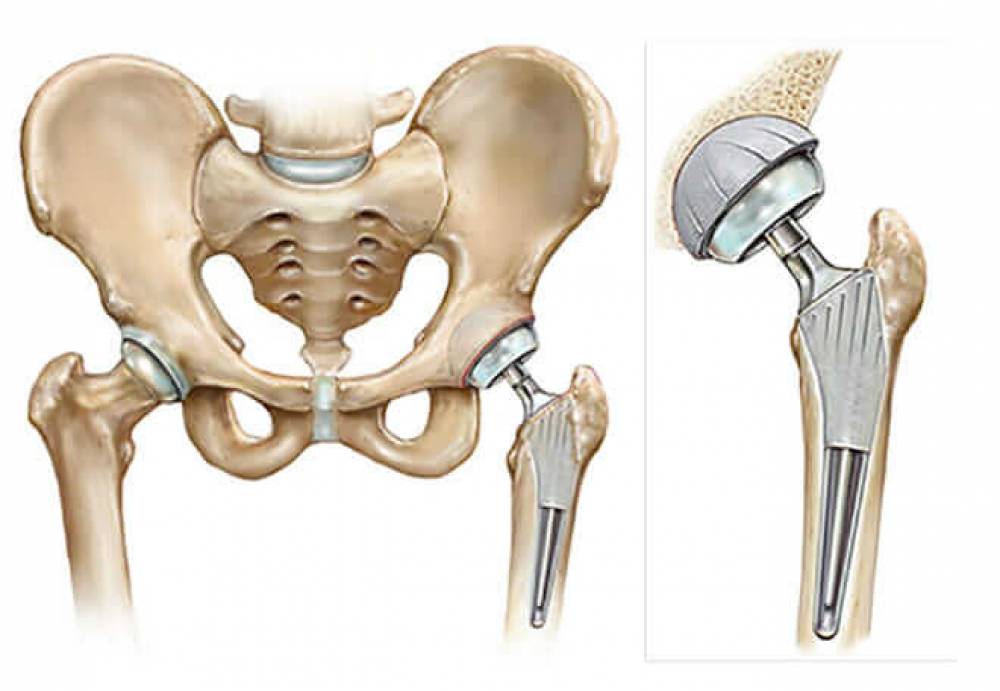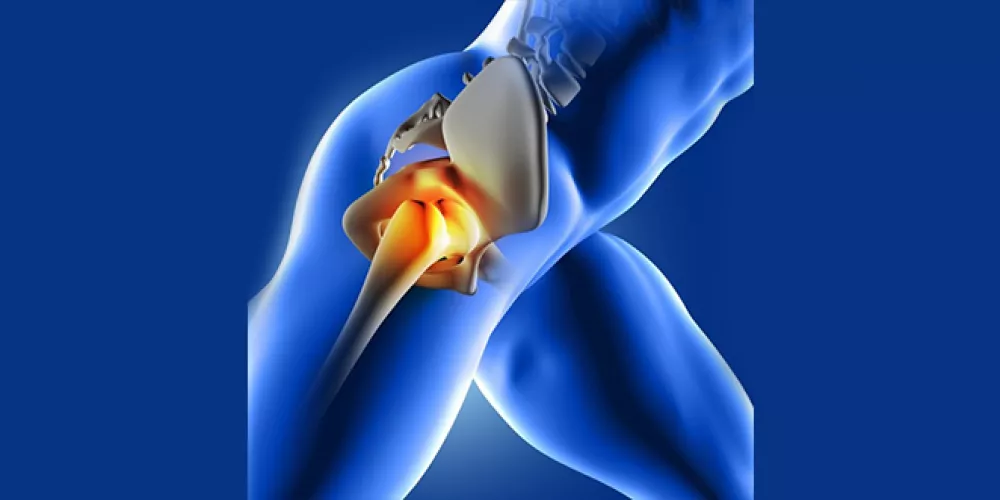What You Don’t Know About Tendon Tears in the Shoulder and Whether It Requires Surgery?
أخر تحديث :
Shoulder Tendon Tear
Shoulder Tendon Tear: 5 Common Causes and How to Prevent Them
A shoulder tendon tear is a common health problem that can significantly affect the movement and function of the joint. It may cause pain, swelling, and loss of strength in the arm. Therefore, in this article, we will review five common causes of shoulder tendon tears and how to prevent them.
1- Sports Injury: Practicing sports exercises improperly or not warming up before starting training can be one of the causes of a shoulder tendon tear. Therefore, there should be significant attention to the practice technique and muscle warming before doing strenuous exercises.
2- Overexertion and Excessive Strain on the Shoulder: Regularly carrying heavy objects or performing activities that require using incorrect shoulder postures can lead to a tendon tear. Therefore, it is important to avoid carrying heavy loads and maintain the correct shoulder posture during any activity.
3- Exposure to Trauma: Severe traumas or collision accidents can cause a shoulder tendon tear. Therefore, necessary precautions should be taken during sports activities or activities where the shoulder is at risk.
4- Aging Processes and Gradual Wear: With age, the shoulder tendon may start to gradually deteriorate and lose its strength and flexibility, which makes it susceptible to tearing during strenuous movements. Therefore, it is important to perform muscle-strengthening exercises around the shoulder and pay attention to proper nutrition to maintain tissue health.
5- Other Factors: There may be other reasons that lead to a shoulder tendon tear, such as joint inflammation or exposure to wounds. Therefore, it is important to pay attention to overall health and perform routine check-ups to identify any problems that may affect shoulder health.
To prevent a shoulder tendon tear, it is important to follow some simple precautions. For example, one should avoid excessively lifting heavy loads and practice sports activities correctly and with proper technique. It is also recommended to strengthen the muscles around the shoulder and maintain a healthy body weight.
In conclusion, both adolescents and adults alike should pay attention to the health and movement of the shoulder and avoid injuries that could lead to a tendon tear. Staying active, maintaining proper postures, and doing muscle-strengthening exercises will help prevent this chronic health problem.
What is the treatment for a shoulder tendon tear?
A shoulder tendon tear is a serious injury that requires immediate and intensive treatment to restore normal shoulder function. Here, we will review some of the methods used to treat a shoulder tendon tear:
- Non-surgical treatment: Non-surgical treatment may be sufficient in minor cases, where anti-inflammatory medications and painkillers are used to reduce pain and swelling. Physical therapy can also be used to strengthen the muscles around the injured tendon.
- Surgical treatment: In cases of large tears or tendons that are important for shoulder movement, surgical treatment may be the best option. The surgery is performed arthroscopically, where the tendon is reattached to its original position and stitched to the bone. Surgical treatment may require a short hospital stay.
- Rehabilitation: After surgery, the patient will need intensive rehabilitation to fully restore shoulder function. The number of sessions and the type of physical therapy and exercises required will be determined based on the surgeon’s opinion.
- Self-care: After surgical treatment and rehabilitation, the patient must follow the treating doctor’s instructions, such as maintaining the use of a shoulder strap and avoiding excessive movements that may negatively affect the treated tendon.
- Regular follow-up: The patient should continue regular visits to the specialist to ensure the healing is progressing and functions are being restored normally. The healing process can last a long time, ranging from months to years.
A shoulder tendon tear is a serious injury that requires specialized and precise treatment. Anyone with a shoulder tendon tear should consult a specialist to determine the appropriate treatment and follow instructions precisely to ensure proper healing and natural restoration of shoulder function.
Does a shoulder tendon tear require surgery?
When someone suffers a shoulder tendon tear, the question may arise as to whether surgery is necessary. Here are the main points to consider:
Size of the tendon tear: If the tear is partial and small, non-surgical treatment may be sufficient. If the tear is large and significantly affects the tendon’s function, there may be a need for surgical intervention. Symptoms and impact on movement: If there is noticeable weakness in shoulder movement and function is affected, surgical treatment may be the best option to restore shoulder functions. If symptoms are mild and do not significantly impact the person’s life, non-surgical treatment may be sufficient.
Therapeutic Options:
- Non-surgical treatment: Doctors may recommend non-surgical treatments such as physical therapy, rehabilitative and strengthening exercises, and stimulative treatments like topical medications and injections that may help in strengthening the tendon and improving movement.
- Surgical procedure: If a surgical operation is needed, the appropriate surgical method and the number of necessary steps will be determined according to the size of the tear and its impact.
Recovery Possibilities:
- After the surgical operation, a period of time will be needed for recovery and healing, which can vary from one case to another.
- Sometimes a person may need to use a brace to stabilize the shoulder and reduce pressure on the treated tendon.
Consulting Doctors:
- It is important to consult with specialized doctors to assess the condition of the tear and determine the most appropriate treatment option.
- The person should follow the doctors’ directions and cooperate with them during the treatment and rehabilitation period.
In the end, whether a tendon tear in the shoulder needs surgery depends on several factors, including the size of the tear, its effect on shoulder function, and accompanying symptoms. Therefore, it is advisable to consult with specialized doctors to get an accurate assessment and make the best decision regarding the appropriate treatment.
How long does a shoulder tendon tear surgery take?
Shoulder tendon tear surgery is a surgical procedure where the tendon is cut and repaired anew. It is typically used to treat common shoulder injuries such as shoulder tendon tears. Some may be concerned about the duration and complexity of this surgical procedure. Therefore, in this list, we will take a look at how long the shoulder tendon tear surgery takes and factors that affect this:
- Type of injury:
- The type of injury may affect the duration of the shoulder tendon tear surgery. There may be simple injuries that require a minor operation and could be completed in a short duration. While severe injuries may require a more complicated operation and may take longer to complete.
- Size and complexity of the tear:
- The size of the injured piece and its complexity are also influential factors in the duration of the operation. If there is a small piece that is easy to access, it may take a little time to cut and repair it. Conversely, if there is a large separation in the shoulder with several complications, the operation will need more time to be completed.
- Surgical technique:
- There are many techniques available for shoulder tendon tear surgery, including open surgery and arthroscopic surgery. The use of each technique depends on the patient’s condition and the surgeon’s preference. The open operation may take longer due to the large incision and more surgical intervention, while the arthroscopic surgery may be less complex and require less time to complete.
- Recovery factors:
- Recovery factors must also be considered when evaluating the duration of the operation. Recovery time can vary from one person to another according to individual factors such as age, overall health, adherence to rest, and the necessary treatment after surgery. Physical therapy sessions and the necessary exercises to restore shoulder movement are important factors in the recovery process.
Specific expectations regarding the operation’s duration cannot be set, as it depends on the many factors mentioned above. Therefore, patients should consult their treating physician to obtain a more detailed estimate and expectations about the shoulder tendon tear surgery in their specific case.
Realistic expectations and understanding of the factors associated with the success and recovery of the operation will help patients successfully and confidently go through the shoulder tendon tear surgery.
What is the cause of shoulder tendon tears?
Some people may suffer from tears or ruptures in the shoulder tendons and may wonder about the possible causes of this condition. In this article, we will discuss some of the common reasons for shoulder tendon tears.
- Acute injury: Tendon tears in the shoulder can occur as a result of an acute injury to this area, such as a strong fall on the shoulder or a severe shock to the shoulder during sports activities. These acute injuries can cause tendon ruptures and severe pain.
- Repetitive strain: Tendon ruptures in the shoulder can occur due to repetitive strain on the shoulder. This strain can result from repeating certain movements, such as lifting weights or playing sports like tennis and handball. These repetitive motions can put pressure on and stretch the tendons in the shoulder and may lead to their rupture.
- Progressive degenerative changes: Tendon ruptures in the shoulder can occur due to progressive degenerative changes in the tendon over time, making the tendon more prone to tearing. These changes may result from stress or narrowing in the tendon’s path, eventually leading to tendon tears.
- Aging factors: Tendon ruptures in the shoulder can result from aging factors that include tissue damage and reduced strength and flexibility of the tendons. The wear and tear resulting from these factors can be a natural outcome of time passing and advancing age.
In general, shoulder tendon tears can occur due to many different reasons, whether it is the result of an acute injury or gradual tearing of the tendon. If you are experiencing symptoms indicative of a shoulder tendon tear, it is essential to consult a doctor to get the correct diagnosis and an appropriate treatment plan.
Can a torn shoulder tendon heal?
Best tips to enhance the healing process:
Follow the doctor’s instructions: It is important to comply with the doctor’s instructions and follow his advice precisely. This may include directions for performing therapeutic exercises and applying ice to the injured area. Rest and avoidance of strenuous activities: It is necessary to stay away from movements and activities that put pressure on the shoulder and expose it to further injury. Therapeutic massage: Therapeutic massage may help improve blood flow and relieve tension in the shoulder muscles adjacent to the tear.
Symptoms that indicate healing of a shoulder tendon tear:
- Pain improvement: Over time, you will notice a gradual improvement in the level of pain in the injured shoulder.
- Restoration of movement ability: You will also notice an improvement in your ability to perform daily movements normally and flexibly.
- Reduction of swelling: A decrease in the size and swelling of the shoulder can indicate the healing process.
Shoulder tendon tear surgeries:
- Retraction surgery: Surgical treatment can involve reattaching torn tendons using screws or surgical plates. This type of surgery may require a long recovery and rehabilitation period.
Factors affecting the healing process:
- Age: Healing may take longer in the elderly due to their reduced tissue healing capabilities.
- General health: The healing process may be affected by other existing health conditions, such as diabetes or high blood pressure.
- Physical therapy: Starting physical therapy sessions can accelerate the healing process and enhance the restoration of normal movement.
When to consult a doctor:
- If the pain persists and does not improve over time.
- If normal shoulder movement does not fully return after the healing process.
- If you notice new symptoms such as severe redness or congestion in the affected area.
How long does it take for a shoulder tendon tear to heal?
Shoulder tendon tears are common injuries that people may experience, and those with a shoulder tendon tear may require a lengthy period to recover and heal completely. The duration of recovery depends on the type of tear and its severity, in addition to several other factors. Here are some details on how long it takes for a shoulder tendon tear to heal:
Partial shoulder tendon tear: In the case of a partial tear of the shoulder tendon, non-surgical treatment may be appropriate in some cases. According to studies, about 8 out of 10 people need a period ranging from several months to almost a year to recover and regain normal strength and motion of the shoulder. It is essential to perform physical therapy exercises and follow the doctor’s recommendations to facilitate the recovery process.
Complete shoulder tendon tear: In the case of a complete tear of the shoulder tendon, surgery may be necessary to repair the tendon and restore shoulder function. The recovery and healing period from surgery can take about 12 to 18 months. During this period, the patient is committed to wearing a shoulder brace to prevent movement for a period ranging from 4 to 6 weeks, followed by physical therapy sessions to strengthen the muscles and regain flexibility in the shoulder.
Factors Influencing Recovery Duration: The recovery duration for a shoulder tendon tear may be influenced by several factors. Among these factors are the patient’s age and physical fitness, the severity of the injury, adherence to physical therapy, and any other health issues the patient may suffer from.
It is important for the patient to understand that the recovery and healing process requires patience and adherence to the doctor’s recommendations. It may be necessary to continually assess and follow up on the patient’s condition during the recovery period to ensure proper progress and avoid any complications.
Do not hesitate to consult a specialist for more accurate information regarding the expected healing duration for your particular case. Commitment to treatment and necessary care are the keys to a quick and successful recovery from a shoulder tendon tear.
What are the symptoms of shoulder tendonitis?
Shoulder tendonitis is a common problem that affects shoulder movement and causes painful symptoms. Here is a list of the most prominent symptoms that may be noticed when the tendons in the shoulder are injured:
- Shoulder Pain: Pain is one of the most prominent symptoms of shoulder tendonitis. A person may feel severe pain when moving the shoulder or when engaging in any sports activity.
- Difficulty Moving the Shoulder: A person with shoulder tendonitis may experience difficulty in normal shoulder movement, where tendon inflammation restricts flexibility and makes movement difficult and painful.
- Weakness in Shoulder Muscles: Tendonitis can lead to weakness in the strength and functions of the shoulder muscles, affecting the performance of daily activities.
- Swelling and Redness: In some cases, swelling and redness may occur in the affected shoulder area due to tendon inflammation.
- Crackling or Popping Sound: In some cases, a crackling or popping sound may be heard when moving the affected shoulder, indicating a tear or dysfunction in the tendons.
- Laxity or Instability in the Shoulder: A person may experience a sense of laxity or instability in the affected shoulder, affecting their ability to perform daily movements steadily.
- Difficulty Sleeping: Tendonitis can cause difficulty sleeping, where pain and discomfort reduce the quality of sleep.
It is worth mentioning that if any of these symptoms appear, the affected person should consult a doctor to diagnose their condition and obtain appropriate treatment. Treatment for shoulder tendonitis may require self-care, physical therapy, or in some cases, surgical intervention, depending on the severity of the condition and the patient’s needs.
What happens after a shoulder tendon tear?
A shoulder tendon tear is a painful injury that many people experience and often requires appropriate treatment. After a person sustains a shoulder tendon tear, several effects and changes occur that impact their daily life. In this article, we will shed light on what happens after a shoulder tendon tear and how to deal with it.
- Severe Pain: The injured person feels sharp pain in the affected shoulder area. The pain may increase during movement or when lying on the affected shoulder. It is important that the pain is addressed immediately to alleviate the tension and discomfort resulting from the injury.
- Shoulder Swelling: The injured may notice swelling in the affected shoulder area. This occurs as a result of irritation and swelling due to the tear. It is important to maintain rest and apply ice to the affected area to reduce swelling and inflammation.
- Weakness in the Arm: The injured person may feel weakness in the movement of the affected arm. It may be difficult to lift the arm or move it normally. Shoulder muscles can be strengthened through exercise recommended by doctors and specialists.
- Reduction in Shoulder Function: The injured person may wish to perform certain movements with the shoulder such as internal or external rotation, but these may become difficult and painful due to the shoulder tendon tear. There is a reduction in shoulder function and the movements that could be performed normally before the injury.
- Need for Immediate Treatment: An individual with a shoulder tendon tear needs immediate treatment to alleviate pain, reduce swelling, and improve shoulder functions. Treatment can include physical therapy, taking pain relief medications, and sometimes surgery in more complicated cases.
- Rehabilitation and Therapeutic Exercises: Recovery from a shoulder tendon tear requires therapeutic sessions and rehabilitative exercises to regain normal movement and function of the shoulder. It is important to follow medical instructions and complete all exercises recommended by doctors and specialists.
A shoulder tendon tear is a serious injury that requires specialized medical attention. It is important to start treating the injury as soon as possible to minimize side effects and speed up the recovery process. The injured should seek medical consultation to diagnose the condition, determine the appropriate treatment, and follow the necessary guidance to improve health and restore normal shoulder functions.
Does a shoulder tendon tear cause swelling?
A shoulder tendon tear is a common health issue that individuals suffer from during daily activities, including sports. One of the common symptoms that can accompany a shoulder tendon tear is swelling. Yes, swelling can occur in the area affected by a shoulder tendon tear. To learn more about this topic, here is a list of some useful information.
Causes of swelling in case of a shoulder tendon tear:
- Direct injury: This refers to exposure to an accident such as falling directly on the shoulder, which can lead to a tear or rupture of the shoulder tendon and cause swelling.
- Inflammation: Inflammation can occur in the joint or the tissues surrounding the tear and lead to swelling.
- Fluid accumulation: In some cases, fluid can accumulate in the affected joint, leading to swelling.
Symptoms of swelling in case of a shoulder tendon tear:
- Increased size of the joint and swelling.
- Feeling of swelling and tightness in the affected area.
- Difficulty in moving the affected shoulder.
- Pain and a burning sensation resulting from the swelling.
Treatment to alleviate swelling in case of a shoulder tendon tear:
- Applying ice: It is recommended to apply ice to the affected area for 15-20 minutes several times a day to help reduce swelling.
- Not straining the shoulder: It is advisable to reduce movement in the affected shoulder and avoid activities that increase swelling.
- Taking nonsteroidal anti-inflammatory drugs (NSAIDs): The doctor may prescribe some medications to the patient to reduce inflammation and swelling.
The importance of consulting a doctor: Those with a shoulder tendon tear should consult their doctor to diagnose and treat their condition correctly. The treatment for swelling in the case of a shoulder tendon tear depends on the severity of the injury and its impact on the patient’s life.
It is worth mentioning that in the event of acute development of shoulder swelling accompanied by severe symptoms such as difficulty breathing, one should seek urgent medical care to assess the condition.
In conclusion, a shoulder tendon tear must be dealt with seriously, and the patient must adhere to the treatment prescribed by the doctor to reduce swelling and promote proper healing.








